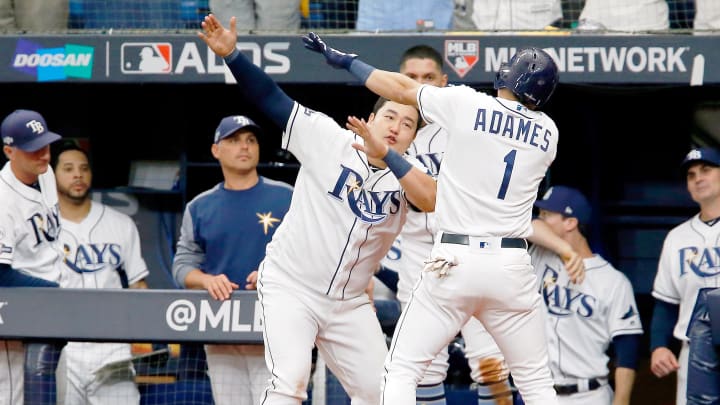An Ode to October: Embracing the Chaos of Postseason Baseball


If it is difficult to define the intention of baseball—some disordered combination of money, desire, tradition and distraction—it is far easier to define the intention of an individual baseball season. It is to find out which team is best. This is why they play 162, a protracted grind in the name of sufficient sample size, to try to answer the question with some degree of certainty. It’s meant to smooth out as much of the randomness as possible. It should give us patterns that can be trusted. It’s supposed to erase flukes and quirks and tricks of the eye. It’s supposed to help us know.
And then those carefully determined results are thrown into the salad spinner of randomness and streak-ridden madness that constitutes the postseason to give us the final answer, and, in the process, prove that we knew nothing all along.
The Dodgers and Astros have established themselves as baseball’s best teams. This is not news. This has not been news since April, and even then, it was so foreseeable as to be almost boring. Their continued success has been assumed more so than predicted. And now each faces a Game 5, win-or-go-home, to make it out of the division series. The talent is clear; these are baseball’s best records and best run differentials and best performances. But talent doesn’t save you in the body of the salad spinner.
That is not to say that the postseason is entirely the product of chance or that it was entirely ridiculous to think that these teams could lose. It’s not, and it wasn’t. The Astros and Dodgers could certainly have handled various features of their series better. The Rays and Nationals are perfectly strong opponents. Houston did not have to go so far with Justin Verlander on short rest in its Game 4; L.A. could hardly be expected to do too much versus prime Max Scherzer in its Game 4; so it goes. And yet it’s still striking—and, depending on your rooting interest, delightful!—that it’s possible to land us here.
Max Scherzer emptied the tank.#Scherzday // #STAYINTHEFIGHT pic.twitter.com/uv0Z7kG7b6
— Washington Nationals (@Nationals) October 8, 2019
A 162-game season has value in the precision of its conclusion. There’s comfort in the ability to trust that the results in front of us have reasonable meaning. But there’s fun in the chaos of the postseason. (Or, if not fun, then at least absurd, which, in this context, can feel very close to the same.) There’s fun in being able to see the Rays—hailed, as ever, as savvy and scrappy—and the Nationals—left for dead at the start of the summer—threaten two teams that they statistically should not be able to defeat in a series. There’s fun in the reminder that these are just games. October does not exist to determine the “best” team. It concedes that the idea of “best” is neither perfectly knowable nor even entirely reasonable. October exists only to determine the team that will win. October exists to play some games.
The Astros finished the season with baseball’s best offense (119 OPS+) and best pitching (127 ERA+). They struck out less than any other team at the plate and struck out more than any other team on the mound. The Dodgers were just behind them (112 OPS+ and 123 ERA+), with a terrifyingly deep roster that has made them next to futile to exhaust. Both teams are well-constructed, well-maneuvered, well-ran. All of these qualities have been on display this week. But, on baseball’s scale of chance, a five-game series is nothing. It has room for anything. It has room for both the best team in the NL and the best team in the AL to be driven to a winner-take-all Game 5, putting two wild-card teams on the brink of playing for the pennant.
The Dodgers and Astros could very well go on to win. MLB could still be on a collision course for a Dodgers-Astros World Series, as so many initially expected. But it just as well may not be.
And therein lies the fun.
